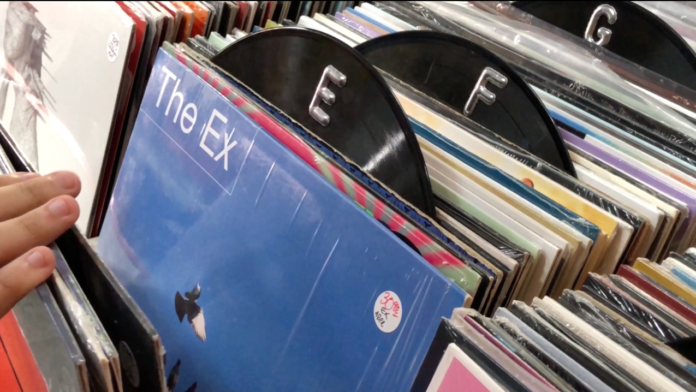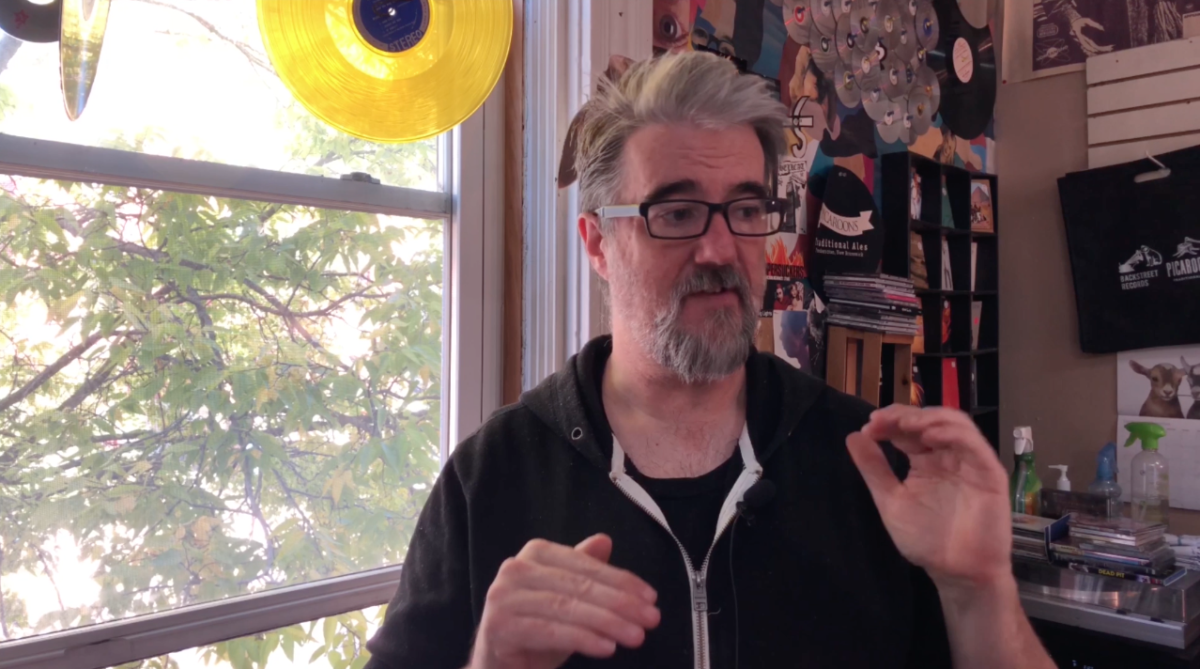

For the first time since the 1980s, vinyl sales are beating CDs in the United States. Eric Hill, the manager of Backstreet Records, said he isn’t surprised. He said the renewed interest began around 1999 when labels started releasing new albums on vinyl.
“A real factor has been the manufacture and availability of cheaper home stereos, especially the more hobby-style turntables,” Hill said. “It’s switched from being this niche, collectible thing and turned into a mainstream collectible thing.”
In a new report from the Recording Industry Association of America (RIAA), vinyl sales increased by four per cent, raking in a total of $232.1 million. But CD sales decreased by 48 per cent, bringing in revenue of $129.9 million.
When formats like vinyl fall out of the mainstream, he said an appeal increases because collectors want to “dig around” and find the records they’re looking for.
He also said a generation of people, now in their late 20s and early 30s, grew up listening to CDs and streaming services. He said a percentage of the generation gained interest in music enough to where they wanted to collect something physical.

“They’ve kind of bundled the CD format into the idea of digital audio versus analog vinyl,” he said. “I think that cachet of something that predated digital and has a firmer place in the history of music is partly what may attract people to it now.”
Hill said considering how listeners gravitate to streaming platforms and fewer people are buying CDs, vinyl accounts for about 90 per cent of sales at Backstreet Records, which has been in business for over 30 years.
Leah Mitchell is a fourth-year French honours student at St. Thomas University. Growing up in a Christian household, she said she remembers sitting with her relatives playing board games and listening to southern gospel music.
Mitchell said at Christmas, it was tradition to read the story of Jesus’ birth and serene music was always in the background.
It wasn’t until Mitchell inherited her great-grandmother’s record collection when she truly appreciated the format. She said she sees the collection as a family heirloom and enjoys reminiscing about the past.


“I wasn’t really close to my great-grandmother, and up until I was 10, I didn’t even know I had a great-grandmother,” said Mitchell. “Now, it’s like having a piece of them that lives on with you.”
According to a CNBC article, more albums are finding their way into the hands of millennials and Gen Z. Mitchell said it could be due to those generations seeking more sustainable options to reduce their carbon footprint.
Mitchell said her generation’s fixated on veering away from fast-fashion in favor of second-hand shops and sustainable goods She said that mindset goes along with records.
Hill said the future of vinyl looks to be stable. Still, a factor concerning him is how much labels charge for a record, which has crept up to around $45 for some. He said it could diminish the buying power of those with a “casual budget.”
“Unless the price starts to reflect what people’s budgets are, [labels] might be pricing themselves out of the range of all but the very rarefied few,” said Hill.
Hill said many people come into the store asking for advice to start a record collection of their own. He recommends buyers stay away from poorly manufactured all-in-one turntables and invest in a higher quality product, which can range between $800 to $1,200.
“The advantage there is, you’ll have a $1,200 stereo that will last you 20 or 25 years. It’ll end up costing you less,” he said.
Besides vinyl, Hill said there is also a market for other older formats like cassette tapes. He said regardless of the format collectors search for, physical copies of music will continue to intrigue listeners for years to come.
“I think the fact that there’s so much recorded music out there in the world that people want to find and collect, I think vinyl and all the other formats will stick around for a while,” he said.
